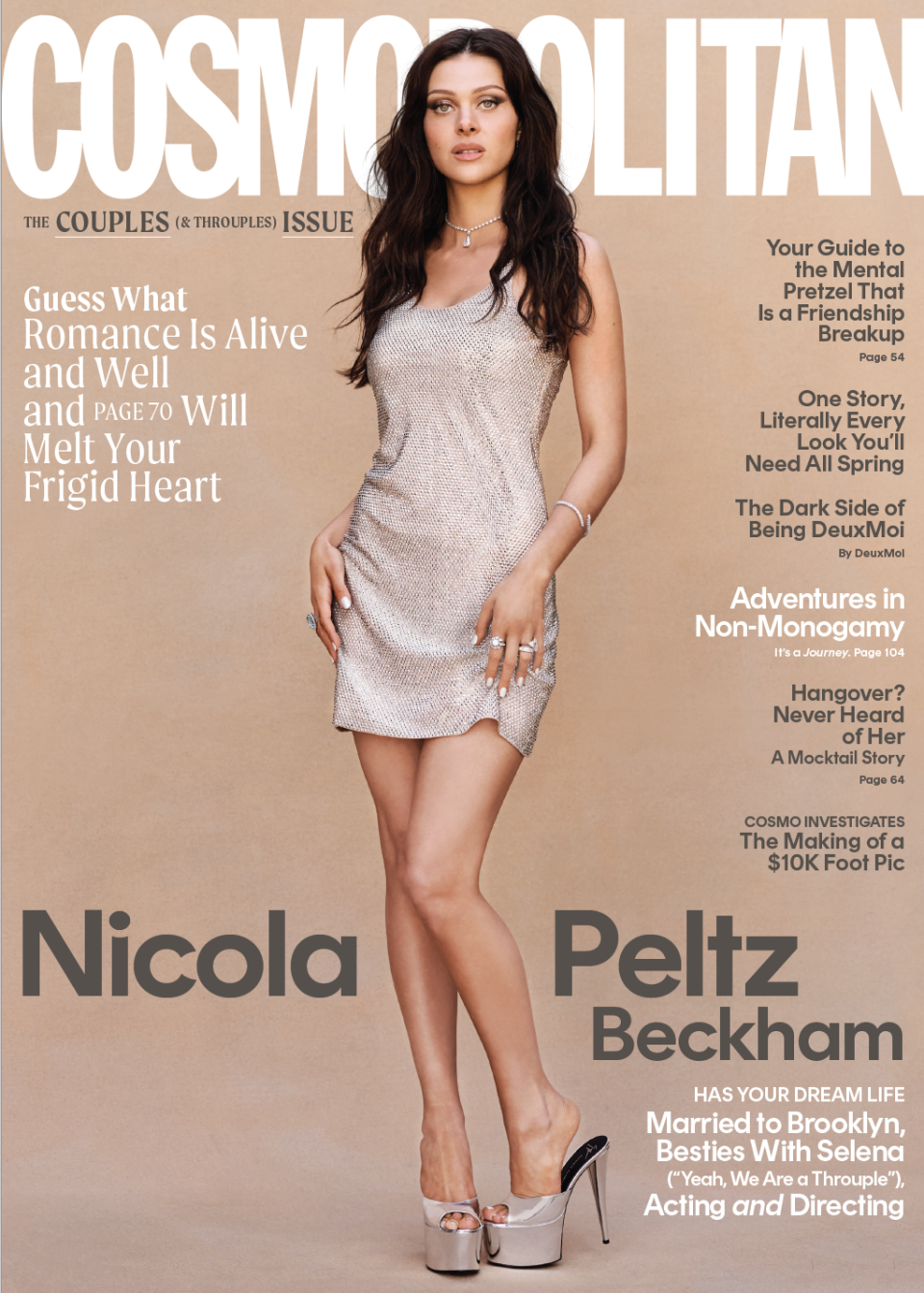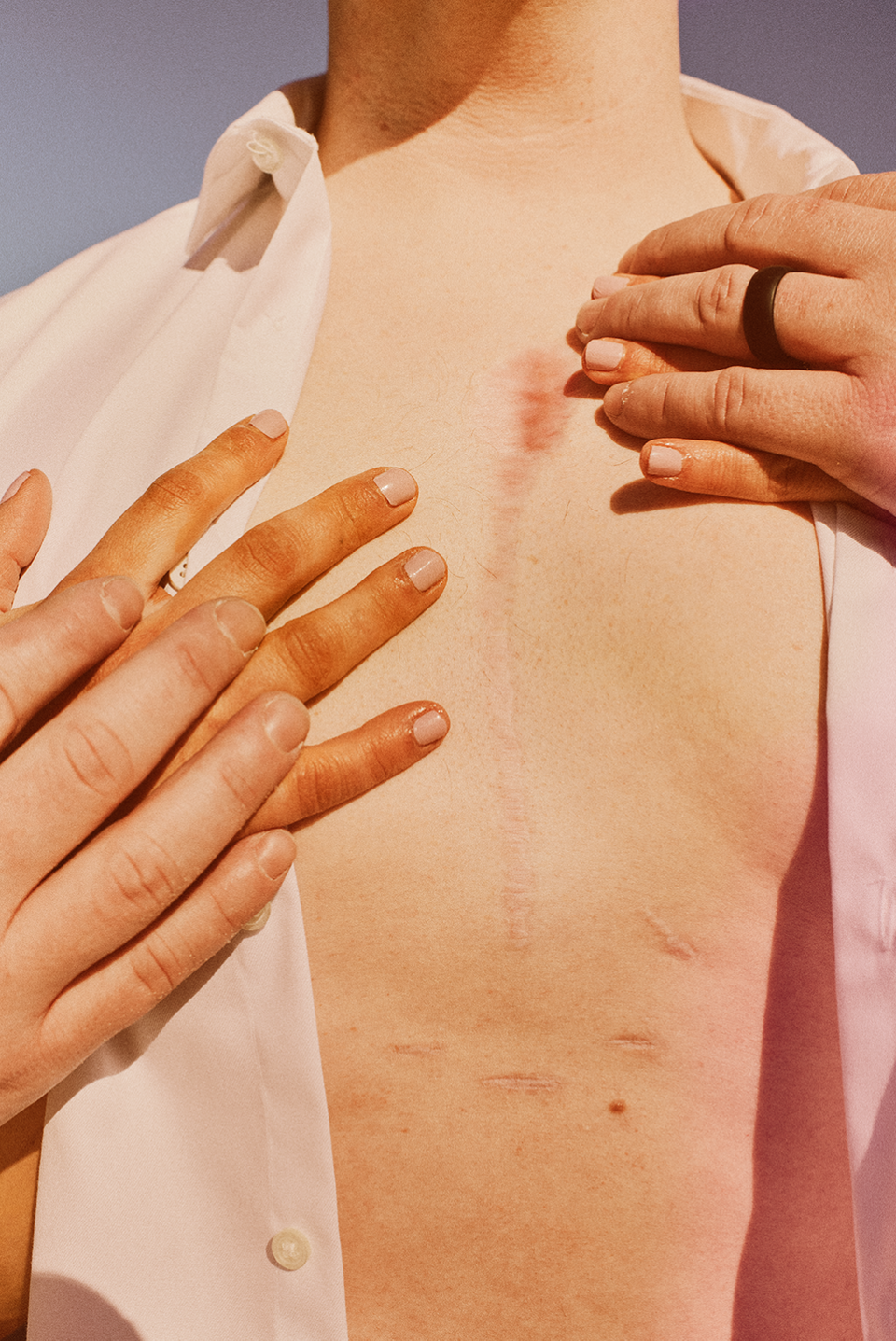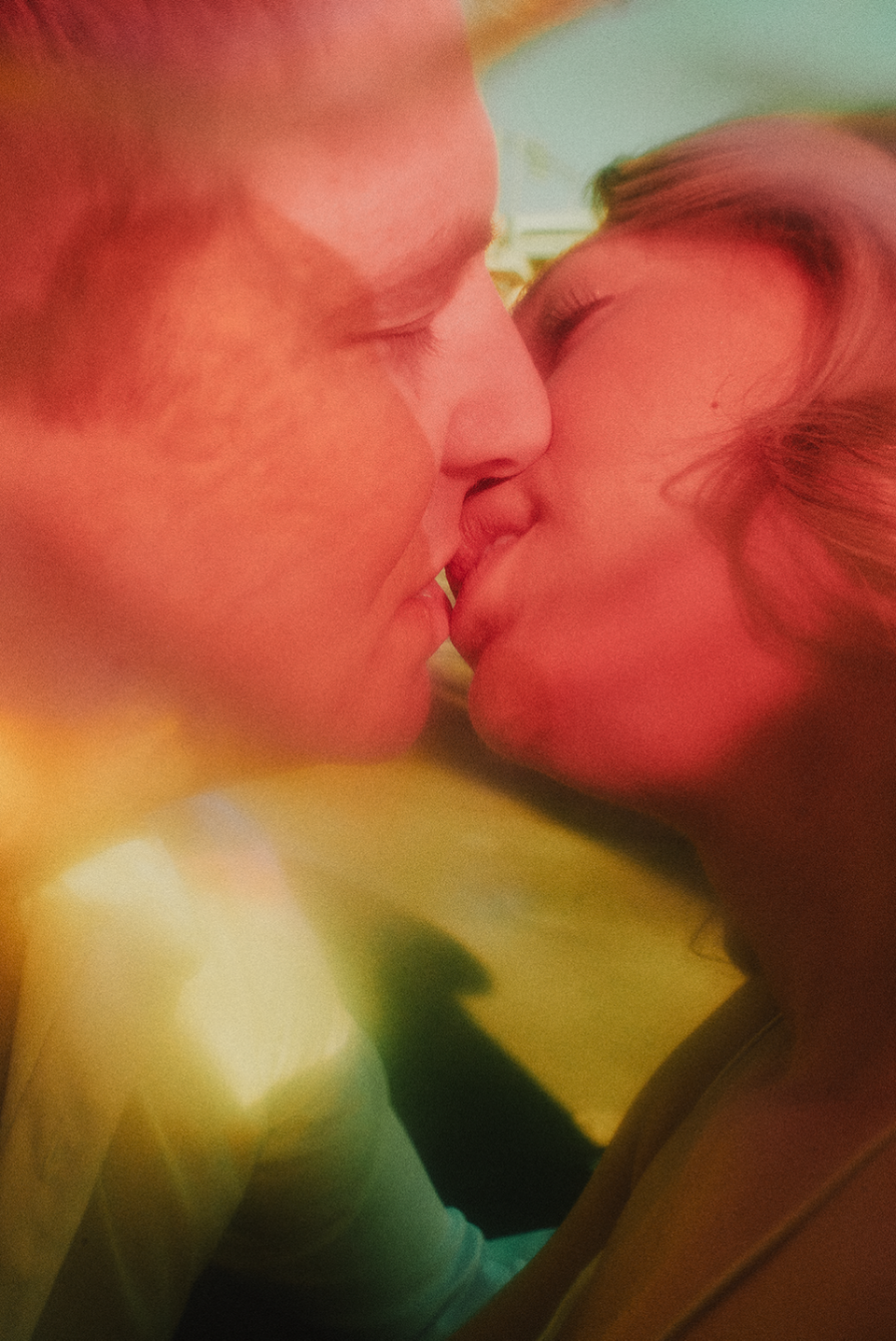The Deathbed Wedding That Wasn’t

Caroline Jordan opened her eyes and stared at the empty side of the bed. It was February 7, 2022—two weeks since she’d rushed her fiancé, Joey Moughan, to the emergency room with a failing heart. Joey’s skin had turned gray. He had been fighting for air, his vital organs shutting down. Replaying the scene in her mind, Caroline felt a knot tighten in her throat. She forced herself to take a deep breath.

She got up, made coffee. Fed the pets, a rescue sharpei named Kangy and their two cats. Pulled on jeans and a T-shirt, a pair of silver glitter Keds—perhaps it would help, to wear something cheerful?—and stepped outside. The Virginia rain frizzed her light-brown hair into a halo.
Half an hour later, she walked through the doors of Sentara Norfolk General Hospital and headed for the advanced heart failure clinic. It had taken her days to accept that Joey was actually a patient in this ward. Maybe they just stuck him here because that’s where they had an open bed, she thought when he was first admitted. He can’t really be in advanced heart failure. Except he was, due to a medical fluke with no clear-cut explanation.
Not so long ago, Joey was in the Marine Corps, able to run a seven-minute mile. But by the time he proposed to Caroline on a scenic overlook at Lake Tahoe in summer 2021, he was nearly blacking out from the strain of a short hike. His doctors put him on powerful medicine, explaining that it would only help for so long. Joey’s heart was pumping blood less and less efficiently. Sooner or later, they said, its function would rapidly spiral out, like falling off a cliff.

He, 26, and Caroline, 25, were supposed to be at the beginning of everything: his post-military career, her doctoral studies, their whole life together. They had a big farmhouse wedding scheduled for the next month. Instead, here he was at the bottom of the gorge, his heart implanted with a life-support pump, wired to a machine that reminded him of an office printer. He was laid up in this hospital bed with just two exit routes remaining: Get a heart transplant. Or die.
Joey looked and sounded better this morning than he had in recent days—more color in his face, his breathing less labored. He told Caroline he was scared, but outwardly, he seemed calm. He had always been the kind of person who described his emotions instead of succumbing to them. And his composure was intentional, a gesture of comfort, a calming power move that exemplified all of Caroline’s reasons for loving him.
Her stay was brief—visitors were allowed in the ICU for just 15 minutes at a time. From there, she drove to her research office a few minutes away, planning to return later on. Around noon, her phone rang. She felt a spike of anxiety: It was Joey calling with his care coordinator. Joey’s vitals had worsened. He might have to be put on unconscious life support, they told her. And if that happened, he faced a serious likelihood of never waking up again. So Joey wanted to know if Caroline would marry him. Today.
Caroline would marry him anytime, anywhere. Yes.
She rallied the hospital chaplain, their families. She dispatched her sister to grab the wedding license from the house, along with a simple white dress from her closet because she didn’t want to deal with a giant wedding gown in the hospital. The sparkly sneakers she had worn that day ended up being perfect.
The ceremony started at 4 p.m. Joey and Caroline were encircled by beeping monitors, blinking screens. Much of his cardiac team was present plus one doctor they had never met, who just wanted to be part of the occasion and cried the whole time.
Caroline noticed little of that, all her senses zeroed in on Joey—his smile, the crinkling at the corners of his eyes, his hand sliding the ring onto her finger. As they repeated the chaplain’s vows, a nurse printed out a reading of Joey’s heartbeat and gave it to them in a little glass bottle: a love letter in chart form. By 4:07 p.m., Joey and Caroline were husband and wife. She didn’t want to ponder the terrifying calculations spinning underneath her joy: How many more minutes would they even have together in this life?
Just days after the impromptu wedding, the couple got word: A new heart had become available, one that appeared to be a perfect match for Joey. A surgical team wheeled him into the operating room the next day. For eight hours, Caroline waited.
Shortly after midnight on February 20, Joey’s heart was gone. He had wanted to keep it, joking with Caroline about displaying it as a pickled souvenir on their dining table. Alas, that was against hospital rules. Instead, he would leave with just one dynamic, mysterious keepsake: the organ now beating unassisted in his chest.
He and Caroline knew almost nothing of the heart’s origins. They were told the donor had been a person around Joey’s age. But they didn’t know that person’s name, didn’t know the details of their death—only that Joey was able to outlive his original heart because the donor, in a twist of fate and timing, had predeceased their own. Joey and Caroline’s marriage, less than two weeks old, now had a silent partner.
Joey was cleared to leave the hospital on March 2, two days before he and Caroline were originally supposed to marry. Rather than wedding prep, Caroline busied herself with the homecoming, changing all the air vents in the house, cleaning all the baseboards, disposing of anything that might irritate Joey’s fragile respiratory system or make him sick.
Once they got home, they sort of just…stared at each other. Caroline couldn’t believe they were actually sitting on their couch together, like old/normal times. She also thought, Okay, what now?
Part of her had hoped that things would immediately get easier. But the sense of being on borrowed time hung in the air and persisted.

A donated heart isn’t a forever fix—the transplanted tissue is more vulnerable to damage than the rest of the body. It degrades on an accelerated timeline. The median survival of a heart recipient is about 13 years. A young, otherwise healthy guy like Joey might get 20 years if he’s both careful and exquisitely lucky. To survive beyond his 40s, he will almost certainly need a second transplant—or a breakthrough medical intervention that doesn’t yet exist.
The ticking clock—though quieter and less urgent now—spurred them forward in contrasting ways. Caroline wanted to encase her new husband in bubble wrap, protecting him from the entire world. His chest had been cracked wide open for the surgery; a 10-inch incision snaked down his sternum. He was severely immunocompromised from the meds he needed to take to prevent his body from rejecting the new organ. (He will be on some dose of these meds for the rest of his life.) The tiniest thing—a bite of undercooked steak—could kill him. Never mind bigger threats like COVID-19.
Caroline managed his follow-up appointments, accompanied him to every visit, reminded him of doctor’s orders—orders not to lift anything heavier than a milk gallon, to avoid crowded indoor spaces. They bickered. She tried to be mindful of his autonomy, but she was learning everything on the fly—the sometimes tricky difference between caring for someone and controlling them.
Joey needed to heal, to rest. But she needed to not be a bride and a widow in the same year. His heart was her future too.
Joey got it. He was grateful for Caroline’s care, of course. The sight of him on his deathbed? He knew she could never unsee that.
They both talked about wanting kids. Neither of them were ready, but she was less ready than he was. Also understandable. Joey has a genetic mutation that may or may not have contributed to his heart failure, a mutation that he may or may not pass on to his kids. A huge question mark, too big to address right then, even on their compressed timeline. If something went wrong—if Joey got sick again or worse—Caroline alone would be left to manage and pick up the pieces. In that sense, he had it easy. All he had to do was lie around and have people feel sorry for him.
At the same time, he was restless. Restless for medical and spiritual reasons alike. At night, he had trouble sleeping because he was on a ton of prednisone—a steroid he and Caroline dubbed Pred Bull, like Red Bull. In the wee hours, he drew up DIY home renovation plans on the computer, wild projects neither of them were equipped to carry out. Caroline woke up to pages of documents in her email.
The donor had extended Joey’s life, and in return for this indescribable offering, Joey felt called to live a life that would honor the donor’s legacy. Not that he didn’t take his own health or recovery seriously. He and Caroline just had vastly different tolerance levels for the gray areas. Joey didn’t want to amble on socially distanced walks with friends or sit in a circle talking. These were not real activities. He wanted to do things. (So did Caroline, in her defense.) His physical limitations felt like a dare.
He wanted to run a marathon, to skydive. Hell, he wanted to go to space. To do the absolute most, whatever was humanly possible. The donor had once dreamed of accomplishing feats of their own, hadn’t they? Joey was both haunted and galvanized by all this young person had left undone in their life.
Caroline came to realize that her most vital protective task was buffering Joey from the impatience and frustration he piled on himself. Reminding him that progress takes time, that the definition of strong is relative. That he was here, alive, a marathon in itself.
Caroline was nervous at first about resuming sex. Wouldn’t she break him? But Joey’s care team assured them it was safe. Intimacy required more communication than before, a different sort of tenderness. This proved to be a good thing. Hot, actually. One silver lining of being medically marooned with your new spouse.
And there was another welcome relief: With each passing week, the chances of Joey’s body rejecting his new heart inched downward. Caroline began to loosen the bubble wrap a little, even if going out still made her nervous. Might always make her nervous.
In the mornings, Joey woke up with the sun and walked for miles around the neighborhood while she was sleeping. They took trips to Walmart during off-peak hours, sometimes twice a day, just to have somewhere to go. They cruised the electronics aisle, thumbed through the $3 movie bins, picked up groceries. Joey joked that he was living like an old retired guy—a dress rehearsal for the years he may or may not live to see.
Slowly, they took bigger steps back into the world: an outdoor party. A whirlwind trip to Charleston, complete with a horse-drawn carriage ride around the city, historic brothel tour, and speedboat cruise. He went back to work as a federal contractor. The familiar rhythm and lightness were returning to their relationship.
At the same time, an unexpected grief nudged in. When Joey sweetly brought Caroline a cup of coffee or when they went on walks together with the dog, just strolling the boardwalk, being cute, the donor joined them too, a quiet shadow presence. Here was the generous stranger who had to die for their happiness to be possible. The grief springs from their constant knowledge of this loss and from the finality of never being able to say thank you.
It’s possible that Joey will be able to thank the donor’s surviving loved ones. The United Network for Organ Sharing, the organization that coordinates transplants in the U.S., allows the recipient to exchange letters with the donor’s survivors if all parties consent. Joey’s transplant center asks patients to wait a year before reaching out.
Caroline joined a Facebook group for transplant recipients and their loved ones. She learned from scrolling others’ stories that many surviving relatives of donors would rather not hear from recipients—it’s too hard, too upsetting. Joey planned to write a letter on the chance that his donor’s family would be open to receiving his profound gratitude, condensed somehow into a few paragraphs. All he could do was try.

As the February anniversaries of the wedding and the transplant approach and as this story heads to press, Joey and Caroline are gearing up to get married again. This is now the third wedding Caroline has planned, a reboot of the “real” celebration she and Joey had to postpone during COVID. This year’s ceremony is set to take place at the same gorgeous farmhouse venue: 120 guests, 10 bridesmaids and groomsmen. Naturally, it’s come with some hiccups, like when Joey booked a mechanical bull for the reception without asking Caroline first. (She said no.)
At their hospital ceremony, they didn’t have time to write original vows. This spring, the words will be their own. Caroline still hasn’t finished hers, but she’s not worried. She is good to him. He is good to her. In her own heart, she believes the donor would be proud.
You Might Also Like

